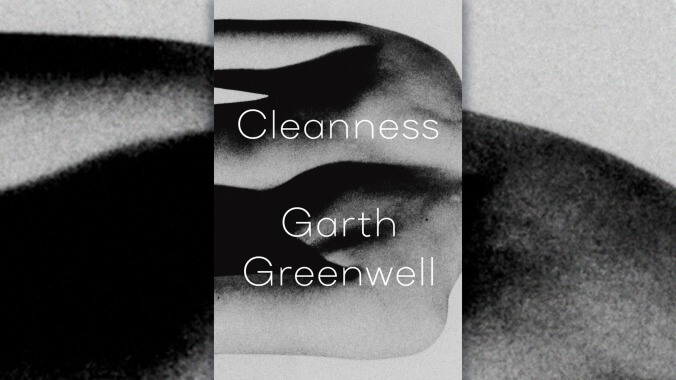“The so-called straight person is no safer than I am really,” James Baldwin said in his last known interview. Straight men, he argued, had needs that couldn’t be expressed. “And that is why they need faggots. They’ve created faggots in order to act out a sexual fantasy on the body of another man and not take responsibility for it.”
Baldwin’s appraisal of heterosexuality takes on a brutal irony in Garth Greenwell’s new novel, Cleanness. The narrator, a queer teacher in Sofia, Bulgaria, acts out—or more appropriately, allows—masochistic fantasies in what Greenwell calls a “book of fiction” (not a collection of linked stories). In the book’s second of nine discrete sections, a man calls the narrator “kuchko” during sex, foreshadowing the danger to come. “It’s our word, bitch, an exact equivalent,” the narrator says. In the book’s second-to-last section, the narrator calls another man a “worthless faggot” over and over during sex that, unexpectedly, does not play into the reader’s worst expectations. In the mirrored structure of these two stories, sex transfigures from transgression to ritual.
As it turns out, Baldwin was only partly right. Queer men need faggots too. Even with strangers, hidden from plain sight, they re-enact violence on the bodies of other men without taking responsibility for it.
Greenwell’s debut, What Belongs To You, told the story of a gnarly relationship between a queer teacher in Sofia and a sex worker. It was nothing if not grimy and brittle. “I wanted to write about these places,” Greenwell has said, referring to public cruising spots, “to show they are full of dignity as much as shame.” What Belongs To You is a warmer book at heart. It’s resplendent with queer desire, and although it isn’t a book about love, the prospect of love stays close in one’s mind. Cleanness, which shares the same narrator as What Belongs To You without explicitly harkening back to its antecedent, is at least partly about love, but doesn’t always feel like it. In the middle section of the book (entitled “Loving R.”), perhaps because the physical violence of sex has been swapped out for the metaphorical violence of heartbreak, the story of the narrator and his boyfriend can often read more like a thesis on the banality of monogamy.
Still, there’s no doubt that something has shifted with R. “Sex had never been joyful for me before, or almost never,” the narrator thinks, “it had always been fraught with shame and anxiety and fear, all of which vanished at the sight of his smile, simply vanished, it poured a kind of cleanness over everything we did.” Still, for the reader, it’s love as a high-wire act, an exercise in waiting for the other shoe to drop. In one section, the narrator and R. amble through the streets of Sofia, Bologna, and Venice. Greenwell’s prose drifts along the picturesque scene, lulling the reader, in the book’s most lovesick story. But something is amiss: A still life painting stuns the narrator. “There was a kind of presence in the painting, I felt, I could sense it humming at a frequency I wanted to tune myself to catch.” Then he ambles along again. The sex later is gentle and soothing, which is notable in a book that often makes pornography seem chaste by comparison.
Then, in the next section, something snaps like a rubber band. The narrator and R. negotiate in vain how to continue with each other. “You could stay, I said, you could make a life here, you wouldn’t have to just sit at home. But I couldn’t put much energy into what I said; he had made a decision, what was the point of talking. I love you, I said, we love each other, it should be enough, though even as I said this I knew it was unfair.” In three ruthless sentences, the two men have lived out an entire lifetime. And all the things that attend love—resignation, pointlessness, the indescribable ache of losing someone, someone loved—have played out.
In this magnificently controlled book, Greenwell places himself in a queer canon that is at some remove from the queer men coming of age more recently. Longing for a reckless display of queer desire, fumbling with whether or not to wear a condom—it is all familiar, and Greenwell renders it beautifully here. More importantly, though, it is deeply radical to reclaim the “filthy” spaces of queer longing, to find, again, the guilt or the complicity in the violence enacted by one queer man on another, all things that feel more and more excised from queer writing. A diffusion of queer communion has occurred. Away from the bathhouses and cruising gardens, modern queer literature tends to be overly virtuous, far too straight; yet inside them, such writing can appear outdated.
Somehow, Cleanness avoids all that. It is both painful plea and wise instruction. It shows how queer writers can and should grab agency by employing the language of receptivity and passivity—conventionally “feminine” sentiments—and of guilt. All things that used to be very important in describing male queerness but have since depreciated. Greenwell is less plaintive than Allen Ginsberg, less hectoring than Édouard Louis, less ponderous than Tony Kushner, and simultaneously of a piece with them all. Together Cleanness’ nine stories reclaim the somewhat-forgotten element of dangerous power struggle that used to more frequently define queerness. Greenwell puts the queer man back into his simultaneously alive and desolate landscape of desire—the one many of us have a hard time remembering in more scrubbed versions of queerness.
Cleanness wants to hum at a frequency the reader must tune to catch. And it does.

